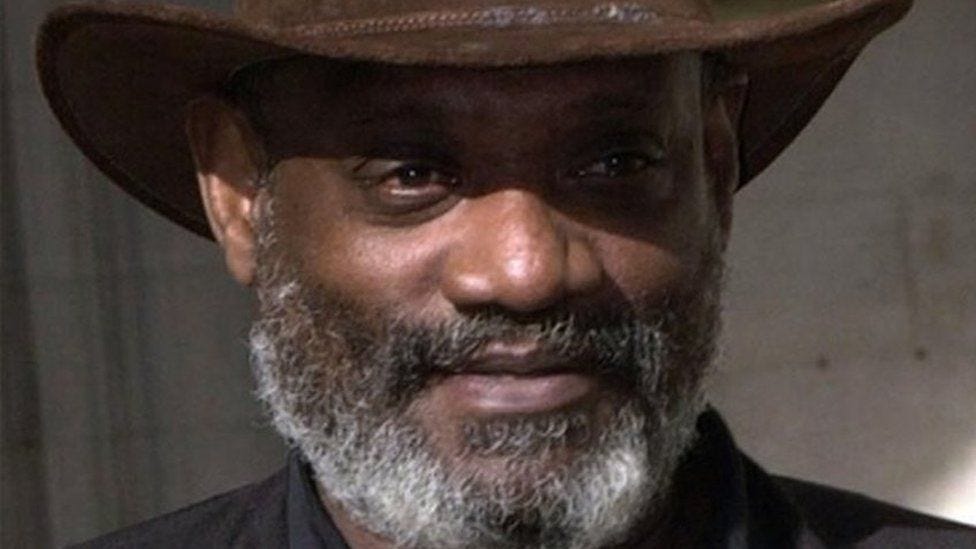White Tribe (2001) Retrospective
Darcus Howe and post-liberalism
Darcus Howe, born 1943, was one of the most significant British black nationalists who shaped racial politics in Britain during the mid to late 20th century. He began in politics as part of the British black panther movement and took part in several race riots - including the Mangrove Nine Incident (where the police faced riots after they attempted to shut a Carribean restaurant which was being used to deal drugs, similar to the Black and White Café in St Pauls, Bristol). He was later being imprisoned for three months for assaulting a police officer (he was released after surreptitious “calls”).
Darcus began to pursue more conventional politics in to the late 1970s and 1980s. He edited ‘Race Today’ which was linked to the Institute for Race Relations. It was here that much of the foundations for institutional milquetoast Afromarxism began to find a footing in local Government, continued on today by seedlings like Portes and Sunder Katwala - these were the years of the Labour Party Black Sections and the hijacking of Arts Council England and the Greater London Council to redirect taxpayers money to promote the economic interests of black ‘artists’ etc.
Darcus’s contribution to ‘progress’ was rewarded by the British Establishment in the later part of his life with a comfortable broadcasting and journalism career. Such was the case for many fellow Carribeans who helped form the Windrush establishment (Darcus Howe was intimately involved with the promotion and growth of the annual Notting Hill calamity). Slightly tamer individuals like Floella Benjamin were made in to Baronesses. I can only hope that the same plum retirement awaits myself once my own political goals are achieved.
In 2001, Darcus Howe was commissioned by Channel 4 to make a documentary about the decline of England since his arrival in the country in 1961 - with the multicultural project in it’s New Labour heyday. The documentary provides an interesting snapshot in to the political assumptions of the time, the sense that England was Broken and deracinated - and in to the psychological response that individuals like Darcus, still very much with the blood on their hands, had towards it’s evident decline.
In parts of the documentary, Darcus engages in something of a gloating exercise. Perhaps the funniest section of the first episode sees Howe visit a regional strip club in which black men are being paraded around a group of proto UK Beast white women.
Darcus smirks that Powell would be turning in his grave and that this is evidence that white women have moved on from Victorian repression - ‘And long may it continue’ - we find out later that he has married a white woman. He goes on to recall that when he arrived in the country it would have been unthinkable for an interracial couple to walk around holding hands, and that a strip club such as the one he was enjoying would have been burned down within days. He concludes that the fact that black men are not being attacked in the streets for pursuing White women is evidence that White men are humiliated.
That one of the main architects of multiculturalism holds this attitude towards interracial relationships - and seems to mourn the country which would have attacked him in the street for holding hands with a white woman - is intensely revealing. Darcus feels spitting contempt towards the people that the State has helped him squash. He does not subscribe to mild narratives about ‘changing attitudes’ - he feels a crude psychosexual victory underwritten by a mild sense of pity.
“What reduced the English to this state?” the programme asks. That is where the second part of Howe’s Afromarxism comes in. After a long, and to be frank, unedifying interview with Norman Tebbit (one of the most important Ministers during the Thatcher years), Howe reflects that Tebbit (who helped crush the unions) was responsible for the deracination of the English people as he opened up ‘the markets’ to investment from Japanese capital and American banks.
Quite how Japanese investment on our Stock Exchange caused the white working class men to stop physically attacking interracial couples is not fleshed out completely - I suspect Howe would prefer to underplay the role of the State and by extension himself in these changes. Watching anything from the early 2000s in Britain I am always struck by two ignorances - the first being that people of the time believed that economic growth would be steady forever (as the Financial Crisis had not yet occurred) and, of course, the grooming gang atrocity that was at it’s greatest extent when Howe was filming this documentary (and still continues).
This was an atrocity which was enabled by the British State, which protected Pakistani gangs from angry fathers by threatening them with hate crime legislation. That the recent racial rioters in places like Southend are targeting the police directly should be of no surprise to anybody who grasps this essential fact. Multiculturalism and demographic change has only been made possible by the energetic use of State power and repression. It, of course, has absolutely nothing to do with the Nikkei 225.
Smug as he is throughout the documentary, we still see elements of brittleness during his interview with Tebbit. At one point, Tebbit states tries to tell Darcus that he is British and not ethnically English, a comment that Darcus gets extremely exercised by; even a mild attempt at early 2000s civic nationalism is enough to drive him to a rage and it is immensely satisfying to see. The grave he is dancing on still has needles in it.



